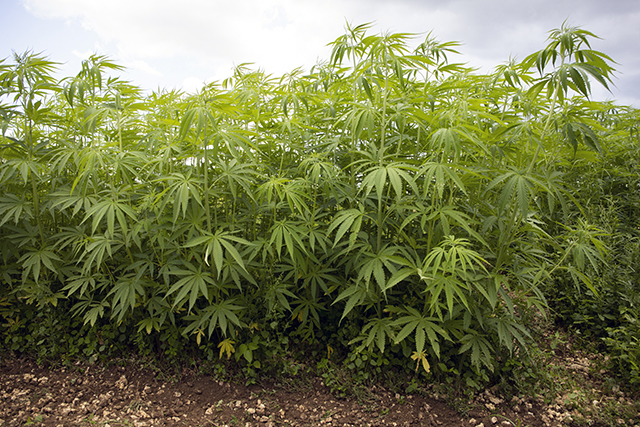A New Crop for Florida Farmers?
The 2019-2021 UF/IFAS Industrial Hemp Pilot Project aims to study and share with Florida farmers sustainable methods by which to grow and profit from three types of hemp production: fiber, grain, and essential oils.
In March of 2018, researchers with the University of Florida Institute of Food and Agricultural Sciences (UF/IFAS) received approval from the UF Board of Trustees to develop hemp management and cropping systems that could be economically viable for the state. At that time, more than 30 states had active hemp pilot projects, however, Florida has a comparative advantage in growing season and markets.
To support the future viability and sustainability of an emerging hemp industry, a preliminary assessment of the crop and cropping systems must be established prior to commercialization. UF/IFAS Hemp Research Team looked to identify productive hemp varieties that could withstand environmental, ecological, and economic threats. UF/IFAS researchers will also studied the risk of any hemp plants becoming invasive threats to Florida’s environment.
Hemp research studies were initially established in three different locations across the state. The UF/IFAS Hemp Research Program is approved by federal and state legislation, including the Drug Enforcement Administration (DEA), Florida Department of Agriculture and Consumer Services (FDACS) and the UF Board of Trustees.
What is Hemp?

Industrial hemp growing in the field at a UF/IFAS research location | UF/IFAS photo
Hemp may be a new crop opportunity for Florida growers with a diversity of products and markets. From 2019-2021, the hemp industry is growing around the country, and Florida has the opportunity to leverage its unique farming and environment infrastructure to get involved.
Hemp is not marijuana, and has no psychoactive qualities. That's because the plant contains less than 0.3 percent tetrahydrocannabinol (THC) by dry weight. Marijuana is scientifically-defined by much higher levels of THC. However, marijuana and hemp share a plant species: Cannabis sativa.
Industrial hemp is a Cannabis sativa plant that has been grown for more than 10,000 years as both a fiber and grain crop. Practical applications include use for fiber, building materials, cattle forages, and pain relief. In terms of the latter, the topical oil Cannabidiol (CBD) continues to be researched as a means by which to reduce or eliminate various health complications, including chronic pain, insomnia, post-traumatic stress disorder (PTSD), anxiety, and other conditions.
UF/IFAS Led the Way
There was much progress much progress made over the two years of UF/IFAS Hemp Pilot Project efforts. Such progress included securing 40 permitted to grow and research locations with more than 30 participating UF/IFAS and UF-Medical College faculty. Several research programs were pursued, including variety trials, cropping system design, and invasion risk assessment.
Former UF/IFAS Senior Vice President for Agriculture and Natural Resources Dr. Jack Payne noted "in a decade leading Florida agricultural research and development, I've never seen such interest in an alternative crop." Payne led UF/IFAS during the development of the initial Hemp Pilot Project.
It's important to note, however, that hemp research doesn't overshadow other UF/IFAS endeavors. Instead, Payne said this study is approached with the same care and attention to detail as all other projects. "Hemp may someday become a profitable Florida crop. So too could peaches, olives, pomegranates, tea, or vanilla. UF/IFAS researches them all."
